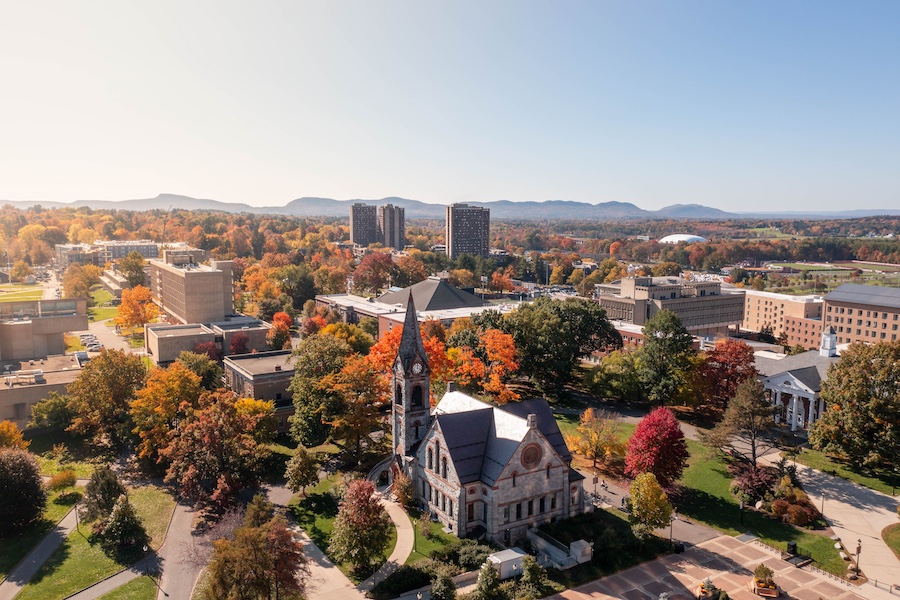Last summer, the Supreme Court ruled that colleges could no longer consider an applicant’s race when making admissions decisions, which was intended to end the practice of affirmative action in college admissions. We wrote about this extensively at the time, but concluded that there was no way to be certain what the effects would be until we saw what admissions numbers looked like.
Here we are, a year later, with colleges finally releasing the relevant admissions data. In this article, we’re going to look at what this data says, what it might mean for you, and what might come next. Let’s get started!
What Admissions Data Say About the Supreme Court Decision
We should note that not all colleges have analyzed their data and released reports on this, but a significant number have. We will focus on those that have, and extrapolate to talk about peer institutions.
First, let’s talk about MIT. In their most recent freshman class, their proportion of Black students was 5%, down from 13% last year. The proportion of Hispanic students fell from 15% to 11%, the number of Indigenous and Pacific Islander students declined slightly, and the proportion of Asian students increased from 40% to 47%. The proportion of White students stayed approximately the same.
This was more or less what everyone predicted would happen; while top universities did not have quota systems in place, they did have strict guidelines in admissions to promote diversity. Without those, they tried to implement new policies, but found they lacked the same impact. MIT was not alone in observing this phenomenon. Amherst College in Massachusetts saw its proportion of incoming Black students drop to 3%.
This is, however, not universal. Yale, for example, saw an incoming class with a steady percentage of Black undergraduates, but a noticeable drop in admitted Asian students, from 30% down to 24%. Princeton observed a similar phenomenon, with Black enrollment remaining steady while Asian enrollment dipped.
These schools all seem disappointed by this. While they did not have an explicit quota system, there is a sense that they wanted to keep a diverse student population, and saw enrollment as the best way to do so.
What Do These Shifts Mean for You?
This is a difficult question to answer, in large part because different schools are shifting in different ways. A clear pattern may yet emerge as more data is released and analyzed, but for now at least, there are a limited number of takeaways, which we will go through in order.
The first is that colleges clearly still want to maintain a diverse student body, but are grasping at straws for how to do so. Their main efforts currently are focused on recruitment and scholarship funding, but it is unclear how well this will work, given the numbers we have seen this year.
The Supreme Court did leave an opening in their ruling however; students are still permitted to discuss their background and identity in their essays, and while colleges may not make admissions decisions based on race, they can take into account how a student’s background shaped them as a person. This does seem like a quibbling and pedantic difference, but that’s how the law works (some lawyers will deny this, but most admit it willingly; it’s why many of them got into law).
Many schools introduced supplemental essays specifically to address this background question, and we saw many of our students make good use of them. Thus the best thing you can personally do is determine how your background, ethic, racial, or otherwise, has shaped you and your journey. Compelling stories here can help show admissions officers that you will bring the kind of diversity they are looking for to their campus.
Finally, these shifts emphasize an important point: that college admissions, and law generally are not static things. There is a belief that any significantly large institution is set in stone, immalleable, and has always been this way. Instead, the opposite is true. College admissions is always changing, law is constantly being reinterpreted and remade, and what holds today may not be true tomorrow.
This is important as a lesson not just here, but generally for college admissions. Many accepted truths which have permeated the cultural zeitgeist are no longer true, though they once held merit. This can be confusing and alarming for parents and students alike, who aren’t certain what information to believe when it comes to college admissions. If you have any questions or concerns on this front, schedule a free consultation with us today. Keeping up to date on what’s going on in admissions is a full time job, so let us do it for you.
What Further Impacts Will the Supreme Court’s Decision Have on Admissions?
The Supreme Court’s decision does not exist in a vacuum, and the full impacts of their writ are yet to be seen. We do have some aftershocks already moving through the field of college admissions however, and will cover these here, along with how they may impact you.
Race-Based Scholarships
If it’s illegal to use race as a factor when making admissions decisions, then should the same hold true when making decisions about scholarship funding? This question is being asked in court, as numerous lawsuits have been filed to question the legitimacy of these programs, and similar initiatives which make judgments on the basis of race.
As a reaction to these lawsuits, many colleges are voluntarily ending scholarships which use race as a criteria, rather than facing costly litigation. This approach then leads to another issue, as it brings universities into the group it wants to court the most: major donors. Many donors provide funding for scholarships for students who meet certain characteristics. Not all of these have a racial component, but many do.
This creates a serious headache for universities, who are now being pulled in several directions at once. Based on donor wishes, the scholarships need to be given to minority students. Based on regulations introduced by some states, they are forbidden from doing so. You can see the tension inherent in this situation.
What comes next is uncertain; we will have to wait for the long process of judicial review to proceed at its steady pace before any permanent changes are enacted. At this point, this will impact you on a school by school and state by state basis, as each tries its best to make sense of the new regulatory arrangement.
Legacy Admissions
It has been noted several times that legacy admissions do not feel entirely fair; this is because they aren’t, but there is a renewed focus on their impact on admissions as a whole now that affirmative action has been ended. This has led several states to introduce new legislation on the topic.
Virginia unanimously passed a bill banning legacy admissions in their public universities, of which University of Virginia is especially notable, being one of the best public schools in the country. Private universities in Virginia are unaffected by this ordinance however, meaning that only some of the state’s colleges are bound to abide by this.
California went even further, banning legacy admissions entirely for both public and private universities in the state. This means that both the excellent UC system and top tier private schools like Stanford and USC are now unable to factor in legacy admissions.
How much this impacts you depends on whether or not other states do the same, and whether or not legacy status is something you could consider taking advantage of. This is a discussion you should have with your parents, concerning their alma mater. Depending on where they went to college (and if that’s a school you also want to attend), this may or may not matter for you at all.
If your legacy status does not factor into your application plans, then this is great news for you. The removal of the legacy advantage can only benefit non-legacy students. This doesn’t necessarily mean that getting into top schools will be easier; acceptance rates will remain quite low. Rather, it means non-legacy students are now on an even playing field.
Students for Fair Admissions
As the group whose lawsuit began this entire debate, SFFA had a vested interest in seeing these results, as much as anyone else who carefully monitors admissions numbers. They saw the same results we described above, with the acceptance rates rising and falling, and had their own reaction.
As the New York Times reported, this was not a positive one precisely. SFFA describes this on their own site as well. To sum up, they believe that Duke, Princeton, and Yale are not abiding by the terms of the Supreme Court’s decision, and are still considering race as a factor in admissions. They have two reasons they say they believe this:
- The number of Asian students admitted to these schools declined.
- All three colleges submitted an amicus brief in favor of Harvard during SFFA’s previous lawsuit
Their claim, plainly stated, is that because other schools saw significant increases in Asian enrollment (such as peer institutions Columbia or MIT), the fact that these schools saw a decline instead is evidence of malfeasance.
We do not agree with this. As experts in college admissions, we know that admissions patterns year to year may not be random, but there is a lot of variation possible within a trend. Just because something is moving in one direction on average does not mean that every data point will land squarely on the line of best fit; indeed anyone with a passing knowledge of statistics knows this to be the case.
That said, we can understand why they are doing this. They have a core belief about what admissions should look like, and the data returned from a number of schools strongly supports their hypothesis; while that from others did not. We believe there are a number of factors they aren’t considering however.
First, that schools can’t use race directly in admissions, but can use proxies, so long as the goal is not to evaluate based on race. Thus the increased push for low income and scholarship students at many of these schools. How exactly schools did this we do not know, but assuming SFFA files another lawsuit, we may get another look.
Next, while race has been removed as a factor in admissions, other scale tipping factors have not, namely legacy status and recruited athletes. Both of these groups tend to favor white applicants, and this may account for the discrepancies seen.
Finally, as we’ve already stated, admissions is always a little fuzzy. Admissions rates fluctuate for any number of reasons, and picking one out of the aether as being monocausal is unlikely to be correct. Indeed, this lack of fuzziness in the numbers year to year is one of the reasons the Supreme Court believed SFFA’s arguments about quota systems and unfairness in the first place.
We do not doubt SFFA will file legal action again if they think they can win. While we do not think this is the best use of time, it does provide us with an unparalleled look into the mechanics of college admissions. Regardless of what follows, we’ll be sure to update you.
Final Thoughts
The Supreme Court’s ruling on affirmative action has significantly changed the field of college admissions. While we’re still waiting to see the full aftershocks of this change, it’s clear that there are new strategic considerations to take into account when deciding where you apply, and how you position yourself and your story through your essays. Colleges remain committed to diversity, though the methods with which they pursue those goals are changing.
If you want help navigating this ever-shifting landscape of college admissions, or aren’t certain how to talk about the diversity present in your own background, then you should schedule a free consultation with us today. We have significant experience helping students from all kinds of backgrounds with their college applications, and are always happy to hear from you.








